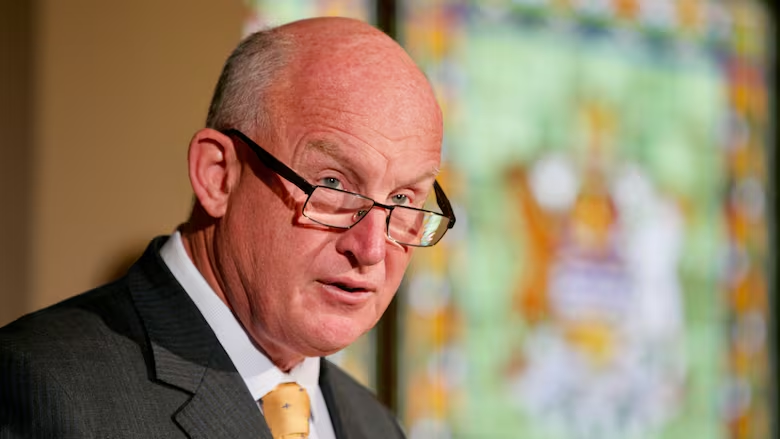Mayors no longer automatically made chair of police boards
Changes to B.C. Police Act now require local councils to select police board representative

British Columbia Public Safety Minister Mike Farnworth has announced reforms to the Police Act that allow municipal police boards to choose their own chair and vice-chair.
Currently, the mayor of a city or municipality automatically becomes the chair of the local police board when elected.
The changes will require local elected councils to select a police board representative, rather than the position automatically going to the mayor.
Farnworth said the amendments to the Police Act form a foundation for a modern policing system that is fair, equitable and responsive to all communities.
"We count on our police to respond in difficult situations to keep us safe and there are ongoing conversations on how to change policing to keep pace with a changing world, particularly for many Black, Indigenous and other people of minority communities who have had negative experiences with the police," he said.
In B.C.'s two largest cities, Surrey and Vancouver, the practice of the mayor doing double duty as chair of the police board has come under scrutiny.
In Vancouver, the Vancouver Police Union made the unusual move of endorsing Ken Sim in his 2022 run for mayor that saw him campaign on a promise to hire 100 new Vancouver police officers.
Upon being elected and sworn in, Sim also assumed the chair of the Vancouver Police Board. One of his first acts as mayor was to lead the majority ABC city council on a vote to give the VPD an extra $4.5 million to fund the new hires.
In Surrey, Mayor Brenda Locke has been at odds with the province in a protracted battle to retain the RCMP as the municipal police force rather than transitioning to the Surrey Police Service.
The entire Surrey Police Board, including Locke, was suspended by the province in November of 2023 over what Farnworth described as a lack of progress in the transition to the Surrey Police Service.
Other amendments to the Police Act include:
-
Changing the definition of misconduct to align with the Human Rights Code and to capture discriminatory jokes and gestures.
-
Addressing gaps in the oversight of detention guards in police lockups.
-
Expanded powers to the police complaint commissioner.
-
Ensuring that a new class of safety officers employed by local governments and First Nations can function as lockup or jail guards, or work in health-care facilities or schools, and will be subject to independent oversight.
-
Expanding who may redeploy police officers in an emergency to speed up response.
-
Updating regulations around police uniforms.
-
Replacing the term police force with police service.
With files from Meera Bains